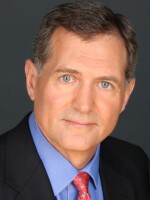SHEREEN MARISOL MERAJI, HOST:
To Saudi Arabia now, where as we just heard, the government led by the young crown prince, Mohammed bin Salman, is under international pressure after the disappearance of Saudi journalist Jamal Khashoggi. President Trump addressed the issue from the Oval Office this afternoon.
(SOUNDBITE OF ARCHIVED RECORDING)
PRESIDENT DONALD TRUMP: The hope was that he was not killed, but maybe that's not looking too good.
MERAJI: As a result of this, companies and public figures around the world are now distancing themselves from Saudi Arabia. We spoke with NPR's Greg Myre about where the investigation into Khashoggi's disappearance stands.
GREG MYRE, BYLINE: Turkey is leading the investigation, and they say they have both audio and video evidence to support their contention that Khashoggi was killed. Now, they haven't released that publicly. Now, the Saudis are also involved in the investigation, and the Turks say they're not fully cooperating. The Saudi position remains the same. They say Jamal Khashoggi came into the consulate. He left. They didn't harm him. But they haven't produced any solid evidence, and they're in a really tough position if they can't explain what happened to him.
MERAJI: What's the reaction here in the U.S.?
MYRE: Well, President Trump has been talking about it and sending pretty mixed signals here. He says he wants to get to the bottom of this, but he's also saying he doesn't want to jeopardize these big contracts, which are mostly arms deals between the U.S. and the Saudis. The Saudis are huge buyers of American weapons.
MERAJI: Saudi Arabia is set to hold a conference called The Future Investment Initiative which is being dubbed Davos in the Desert. And executives from Uber and the LA Times, CNN, have all dropped out. So has the president of the World Bank. Saudi Arabia's young de facto ruler, Mohammed bin Salman, has been trying to modernize the Saudi economy and make it about more than just oil. And he's been investing in Silicon Valley. And he's been wooing Western partners. Could this event threaten all that?
MYRE: Absolutely. And again, as you as you rightly pointed out, this big conference that's scheduled for later this month is the centerpiece of this vision he has which is to reshape the Saudi economy. And he's brought in all of these big-name people. And one of the real ironies here is this conference was held last year around this time. And it's held at the Ritz Carlton, a very opulent, over-the-top hotel in the capital, Riyadh. And it was - it was very successful. A lot of big-name people came.
It seemed to be going to the point that he could bring in a lot of investors modernize, make Saudi Arabia a very high-tech place. But shortly afterwards, it was really turned into a prison, this this very strange episode where many of the wealthiest Saudi businessmen were rounded up and kept at the Ritz Carlton for weeks or even months in some cases and ultimately had to turn over a big part of their - of their fortune. So it - this conference in this hotel is sort of representing both the crown prince's effort to modernize and change Saudi Arabia, but also points to his autocratic behavior in many ways.
MERAJI: You've been following this story closely. What are you watching for going forward?
MYRE: First, how is Saudi Arabia going to respond? Are they just going to keep denying and denying and denying when Jamal Khashoggi is - has disappeared? Second, given Saudi's extensive oil supplies, that it's a big buyer of many Western products, will any kind of big boycott of Saudi Arabia really hold for the long term?
MERAJI: That's NPR's Greg Myre. Thanks, Greg.
MYRE: Thank you. Transcript provided by NPR, Copyright NPR.



